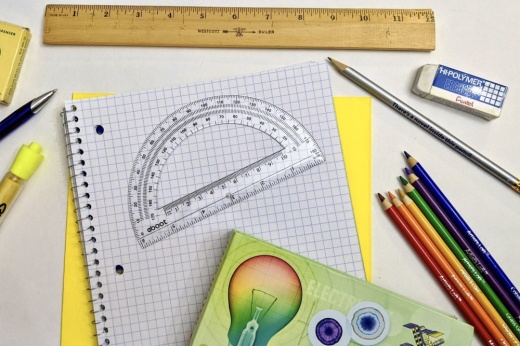Increasing school funding
Public school funding remains a top priority for lawmakers, educators and advocates. Because schools receive funding based on attendance, some administrators said their districts lost funding during the 2021-22 school year.
The state finances schools through the basic allotment, which is the amount of money schools receive per student. Funding is based on average daily attendance, or the number of students at school on average. Average daily attendance is the sum of students present throughout the school year divided by the number of days schools are required to be open, according to the Texas Education Agency.
Schools then earn $6,160 per student who meets the average daily attendance threshold. But when a student is frequently absent, their school loses money, even if the school’s day-to-day operations do not change.
House Bill 31, filed by Rep. Gina Hinojosa, D-Austin, would require schools to be funded based on the average number of students enrolled during the academic year. This would protect districts from losing money when students miss school.
An identical bill, Senate Bill 263, was filed by Sen. Nathan Johnson, D-Dallas.
Two bills in favor of enrollment-based funding—HB 1246 and SB 728—were filed during the 2021 legislative session. But despite bipartisan support from lawmakers and educators across the state, neither bill received a hearing or reached the chamber floors.
Johnson also filed SB 88, which would increase the basic allotment to $7,075. The bill calls for an increase in the allotment when inflation rises to keep pace with the cost of maintaining a school. Rep. Donna Howard, D-Austin, filed an identical bill, HB 882, in the House.
According to research by Education Week, Texas is behind the national average for per-student funding by over $4,000.
Expanding assessments and testing
HB 37, filed by Rep. Mary González, D-El Paso, would establish a commission tasked with developing recommendations to improve public school assessment and accountability. Multiple bills aim to directly alter Texas’ assessment model, including HB 337, which would alter certain end-of-course assessment and graduation requirements, and HB 680, which would implement “growth-based” assessments that can be catered to students’ needs.
González filed an identical bill, HB 1867, in 2021. It did not receive a committee hearing.
Rep. Ernest Bailes, R-Shepherd, filed HB 535, which expands the indicators used to measure public school achievement. The TEA releases annual achievement and accountability ratings for districts and campuses, which are graded on an A-F scale.
HB 4545 became a law in June 2021. The bill was designed to support students who do not pass Texas’ annual standardized test, the State of Texas Assessments of Academic Readiness. The bill requires that students have the opportunity to receive 30 hours of targeted instruction for any STAAR subjects they fail.
Regulating classroom content
Rep. Tom Oliverson, R-Cypress, filed HB 338, which would require publishers to issue content ratings for all books and “written material” used in public and charter schools. The ratings would be based on a student’s age and the topics discussed, limiting who could access certain materials. There would also be an option for the state to recall books with incorrect ratings.
According to free-speech nonprofit PEN America, Texas banned 801 books from July 2021-June 2022. That is more than any other state in the nation.
The 88th Texas Legislature begins Jan. 10. Texans can track legislation here.





